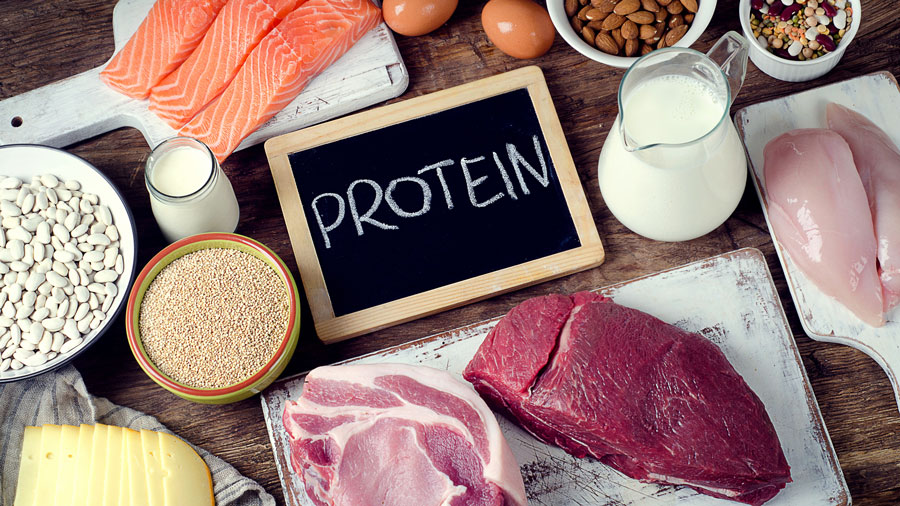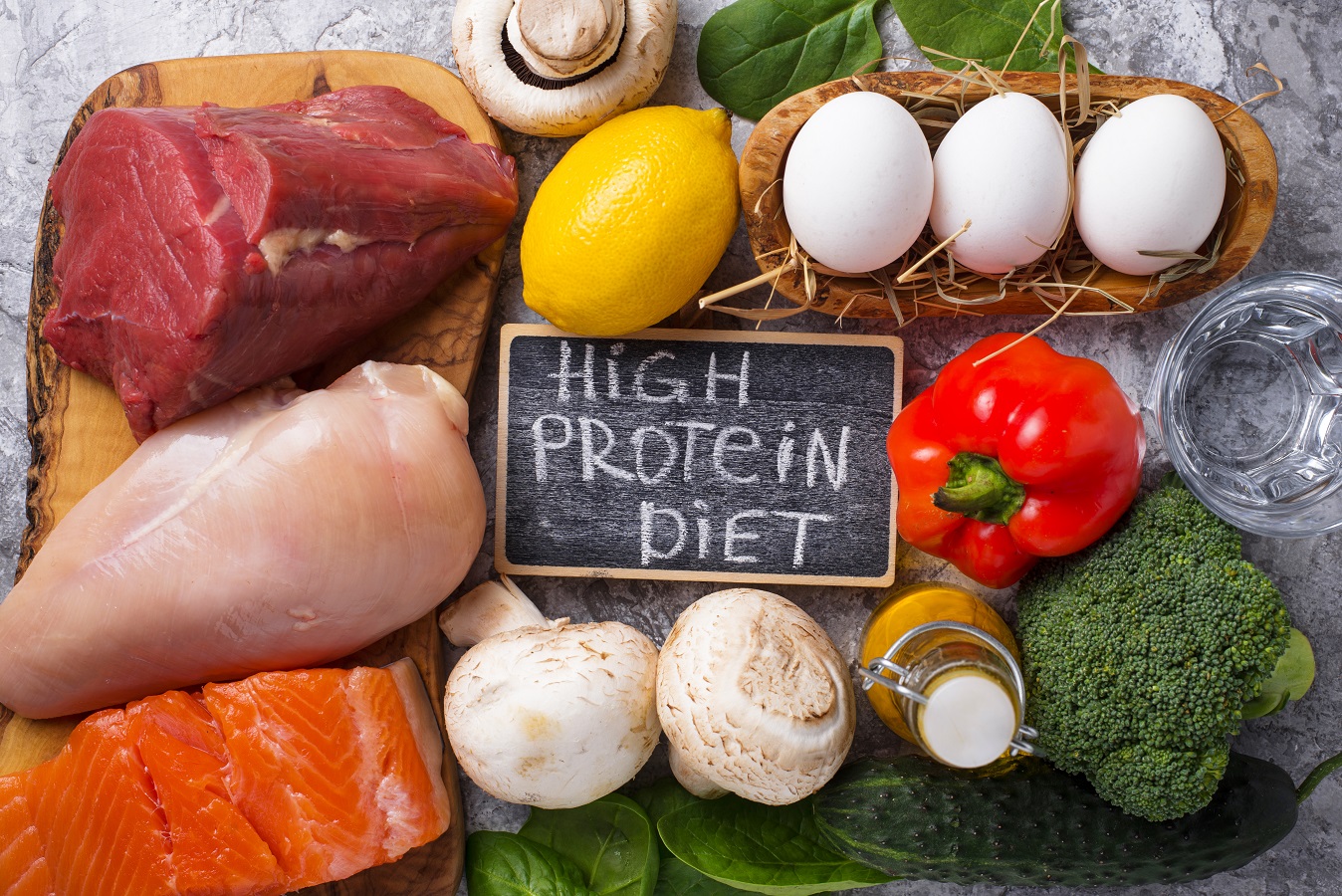What is a Protein Diet? Benefits of a Protein-Based Diet
Proteins consist of many building blocks known as amino acids. Proteins, which are of vital importance, have structural or mechanical functions in the body. Proteins, which are contained in most animal and plant sources, perform important functions in many critical processes in the human body.

Protein, carbohydrates and fats, that is, macronutrients, have an important place in the body's normal functions. Proteins consist of small building blocks also known as amino acids . Amino acids take an active role in many activities in the body, especially the repair and renewal of tissues and organs. Some of these important building blocks cannot be synthesized by the body (essential), in other words, they must be taken into the body through food.
For this reason, it is recommended to meet some of the daily calorie needs with proteins. According to some studies on protein, increasing protein intake may help reduce the feeling of hunger, speed up metabolism, and therefore lose weight. Alright; What is protein diet and how is it applied? What nutrients does the protein diet list contain? Detailed information about protein diets such as these is included in the following parts of the article.
What is a Protein Diet?
A protein diet is a diet program that focuses on limiting carbohydrate and fat intake while increasing protein intake. Proteins are macronutrients that play an active role in the construction, repair, renewal and protection of tissues in the body. A protein-based diet basically aims to preserve the body's muscle mass and achieve weight loss by increasing protein intake. Under normal conditions, an adult needs 0.36 g or 0.8 grams of protein per kilogram to meet his daily protein needs.
In a protein diet, approximately 25% of daily calories are provided by protein sources. In other words, when following a protein diet, protein sources such as red and white meat, fish, milk and eggs should be included more.
What are the benefits of a protein diet?
:max_bytes(150000):strip_icc()/is-a-high-protein-diet-best-for-weight-loss-3495768-a-2062b3f0080d4401ba2b031449dcc418.jpg)
Protein is one of the important building blocks that play a role in the renewal and repair of tissues such as muscle, bone, skin and hair. In other words, proteins play an important role in maintaining vital functions. However, proteins also play an important role in the production of hormones. Proteins, which are also responsible for performing functions such as directing, transporting and storing chemical reactions in the body through enzymes, have a vital importance in the body's repair process, the functioning of the immune system and the regeneration of tissues. Therefore, a protein diet has significant health benefits. The main benefits of the protein diet are as follows:
- Feeling of fullness: Protein takes part in the production of hormones called PYY and GLP-1, which are known to play an active role in hunger control. In addition, proteins also play a role in reducing ghrelin levels, also called the hunger hormone. Studies show that increasing protein consumption can help with weight loss by causing you to consume fewer calories, thanks to its effects on the hunger hormone. Additionally, some research shows that a protein diet may also aid weight loss by speeding up the digestive process.
- Effect on increasing metabolic rate : Protein consumption can increase metabolic rate by approximately 20-35% compared to carbohydrates or fat. People on protein-heavy diets may tend to burn more calories for several hours after eating. A study shows that a high-protein diet increases the metabolic rate after meals almost twice as much as a high-carbohydrate diet.
- May help lose weight: Protein's effects such as reducing appetite, providing a feeling of fullness and accelerating metabolism make it an effective nutrient in weight loss. Some studies show that increasing protein intake during the day supports fat loss, which in turn may help with weight loss. In addition, protein-based diets can help you lose weight in a healthy way by preventing muscle loss during the weight loss process.

In addition to the above, protein consumption can help strengthen bones and increase muscle mass. Thanks to this feature, it can support the healthy weight loss process.
What are the Harms of Protein Diet?

Under normal circumstances, for those who do not have any health problems, a short-term protein-based diet does not usually cause harmful effects. On the contrary, a protein diet can help you lose weight in a healthy way by increasing the feeling of fullness. However, diets that focus more on a single food group, such as a protein diet, may cause various health problems in the long run. Research on whether high-protein diets, especially those that limit carbohydrate intake, have long-term risks continues today.
Some high-protein diets cannot provide enough nutrients and fiber intake that the body needs due to restricting carbohydrate intake. This can lead to some health problems such as shortness of breath, headache and constipation. In addition, foods with high fat content, such as red meat, included in high-protein diets, may also increase the risk of cardiovascular disease. These foods can also cause an increase in bad cholesterol. In addition, some studies show that a high-protein diet may negatively affect kidney function in people with kidney disease.
Protein Diet List

It is important to choose the right protein sources for those who want to start a protein-based diet . The main protein sources included in a sample protein diet list are as follows:
- Red meat: Meat and meat products, especially lean beef, are protein sources that have an important place in the protein diet list. The presence of important minerals such as iron, zinc, selenium and important vitamins such as B12 and B6 in lean beef makes it one of the important nutritional sources for a healthy life.
- Oily fish: Oily fish such as salmon and tuna are among the known good sources of protein. Omega-3 fatty acids found in fish are healthy fat sources. In this way, it supports the weight loss process and may also help protect heart health.
- Egg: Eggs have an important place among foods low in unhealthy fat content. Almost all egg whites are a good source of protein. However, both the yolk and white of the egg are rich in vitamins, minerals, antioxidants and healthy fats.
- Milk and dairy products: Milk and dairy products such as yoghurt, which are known to be rich in minerals such as calcium , selenium and zinc, are also a good source of protein. For this reason, milk and dairy products, especially yoghurt, are often included in protein diets.
- Pumpkin seeds: Pumpkin seeds, which are a good source of fiber, have an important place among vegetable protein sources.
SOURCE:
https://www.livhospital.com/liv-saglik-kosesi/protein-iceren-besinler
https://www.rafinera.com/blog/diyetisyen-kosesi/protein-nedir-ne-ise-yarar







































